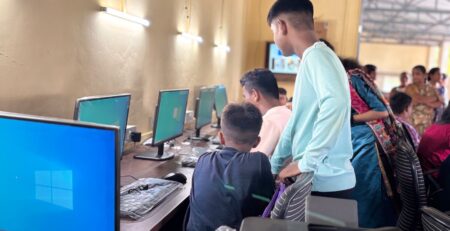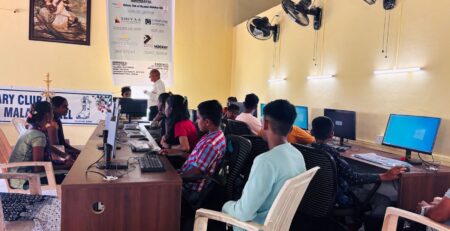The unique challenges faced by tribal families in accessing child care services.
Satya2023-02-19T22:48:14-05:30Tribal families in INDIA often face unique challenges when it comes to accessing childcare services. These challenges are rooted in both historical and current issues, including poverty, lack of transportation, and limited access to quality childcare providers.
One of the biggest challenges faced by tribal families in poverty. Many reservations and tribal communities are located in remote and isolated areas, where economic opportunities are limited. Many families living in these areas struggle to make ends meet, and the cost of child care can be prohibitively expensive. This can make it difficult for parents to work or attend school, which can further perpetuate the cycle of poverty.
Another challenge faced by tribal families is the lack of transportation. Many reservations and tribal communities are located in rural areas, where transportation is limited. This can make it difficult for parents to access childcare services, especially if they live far from the nearest provider. This can be a significant barrier to work, education, and overall quality of life for parents and their children.
Limited access to quality childcare providers is another challenge faced by tribal families. Childcare providers located in or near reservations and tribal communities may be few and far between, and the quality of care offered may be subpar. This can make it difficult for parents to find safe and nurturing childcare for their children.
The language barrier also can play a role, where providers may not speak the language of the families they serve, which can make it difficult for families to communicate their needs and for providers to understand the unique cultural needs of the children in their care. Also, the lack of cultural sensitivity and understanding among childcare providers can lead to children being treated differently and can make it difficult for them to form healthy relationships with their caregivers.
Furthermore, the lack of funding and resources for childcare services on reservations and tribal lands is also a challenge. The federal government has a trust responsibility to provide funding and resources for child care services on reservations and tribal lands. Still, this funding is often inadequate, and the resources provided are not always sufficient to meet the needs of families. This can lead to a lack of access to quality childcare services for tribal families.
The COVID-19 pandemic has also made the challenges of accessing childcare services for tribal families more pronounced. With many childcare providers closing or limiting their capacity, and many parents losing their jobs, it has become even more difficult for families to find and afford child care.
In conclusion, tribal families face a number of unique challenges when it comes to accessing childcare services. These challenges include poverty, lack of transportation, limited access to quality childcare providers, language barriers, lack of cultural sensitivity, and lack of funding and resources. Addressing these challenges requires a multifaceted approach, including increased funding and resources for childcare services on reservations and tribal lands, transportation assistance, and cultural sensitivity training for childcare providers. Additionally, it’s important to involve community members, parents, and tribal leaders in the process of identifying the needs and providing solutions to create sustainable and adequate child care services for tribal families.







Leave a Reply